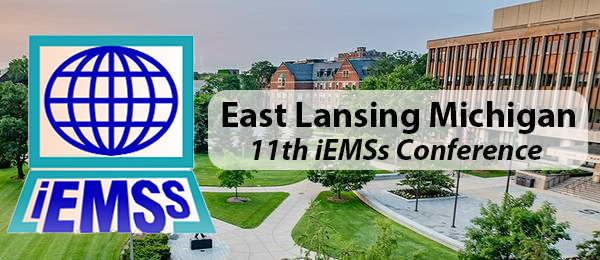Keywords
Serious Games; Participatory Modeling; Integrated Water Resources Management; Shared Vision Planning
Start Date
5-7-2022 1:00 PM
End Date
5-7-2022 1:30 PM
Abstract
To build consensus around inherent multi-objective trade-offs integrated water resource management (IWRM) decisions usually requires structured collaboration across multiple stakeholder groups and decision-making authorities. For this reason, participatory modeling (PM) is often at the core of IWRM decision-making processes. However, the diversity and complexity of physical, social, and environmental dynamics in water resources systems is a substantial barrier to PM in these contexts, because it makes developing a shared understanding of the system difficult. This presentation will recount the iterative development of a serious game designed to help IWRM teams achieve the cognitive, social, and practical milestones necessary to achieve consensus based IWRM decisions. Experiences playing versions of the game with Mekong River Commission decision makers, and teams from US-based water resource agencies will be discussed. A rapid “miniature version” known as Lincoln Dam will also be played live to demonstrate a key element of the game play. The current version of the game will also be described. This includes a description of the game set-up, which guides participants through the interactive construction of a shared representation of their specific water resources system; and various modes of play that emphasize system dynamics, coordination, multi-objective trade-offs, and collaboration under uncertainty. The presentation will conclude with a description of impacts the game intends to have on PM efforts.
Serious Games to Support Participatory Modeling in Integrated Water Resource Management
To build consensus around inherent multi-objective trade-offs integrated water resource management (IWRM) decisions usually requires structured collaboration across multiple stakeholder groups and decision-making authorities. For this reason, participatory modeling (PM) is often at the core of IWRM decision-making processes. However, the diversity and complexity of physical, social, and environmental dynamics in water resources systems is a substantial barrier to PM in these contexts, because it makes developing a shared understanding of the system difficult. This presentation will recount the iterative development of a serious game designed to help IWRM teams achieve the cognitive, social, and practical milestones necessary to achieve consensus based IWRM decisions. Experiences playing versions of the game with Mekong River Commission decision makers, and teams from US-based water resource agencies will be discussed. A rapid “miniature version” known as Lincoln Dam will also be played live to demonstrate a key element of the game play. The current version of the game will also be described. This includes a description of the game set-up, which guides participants through the interactive construction of a shared representation of their specific water resources system; and various modes of play that emphasize system dynamics, coordination, multi-objective trade-offs, and collaboration under uncertainty. The presentation will conclude with a description of impacts the game intends to have on PM efforts.



Stream and Session
false